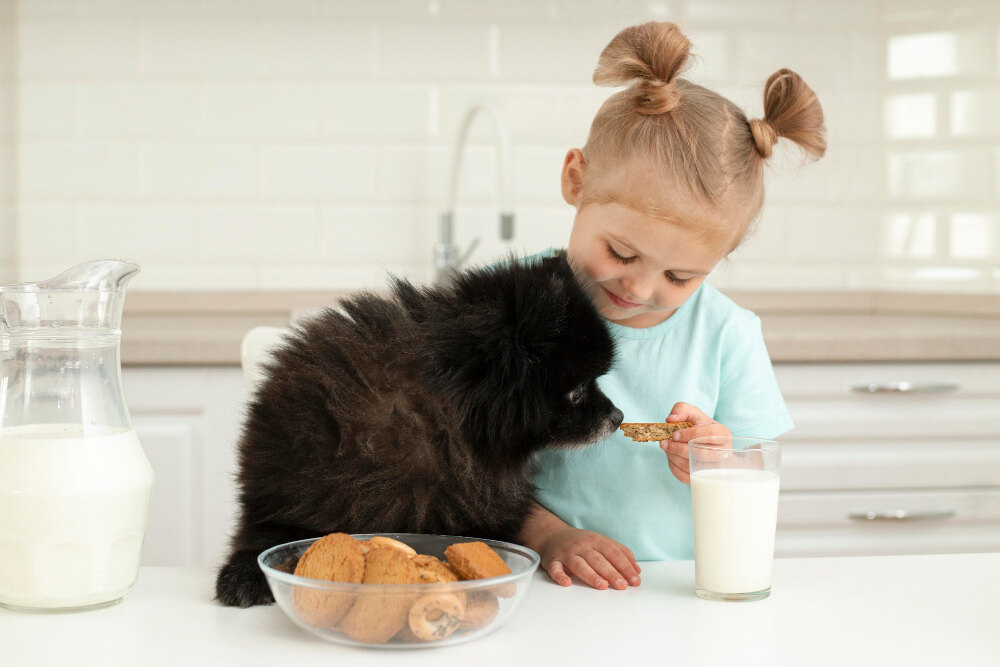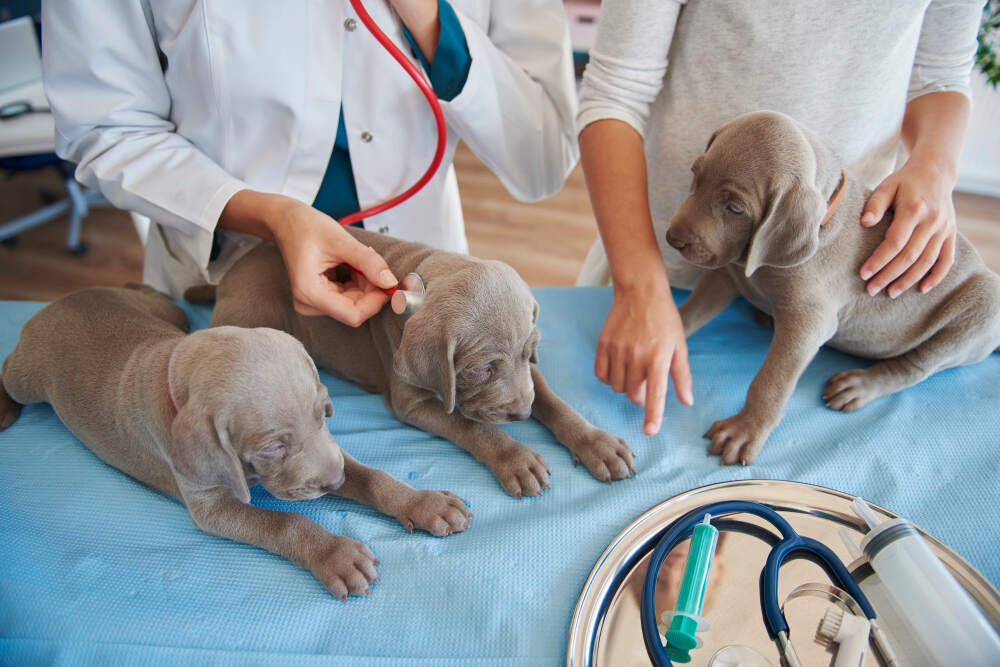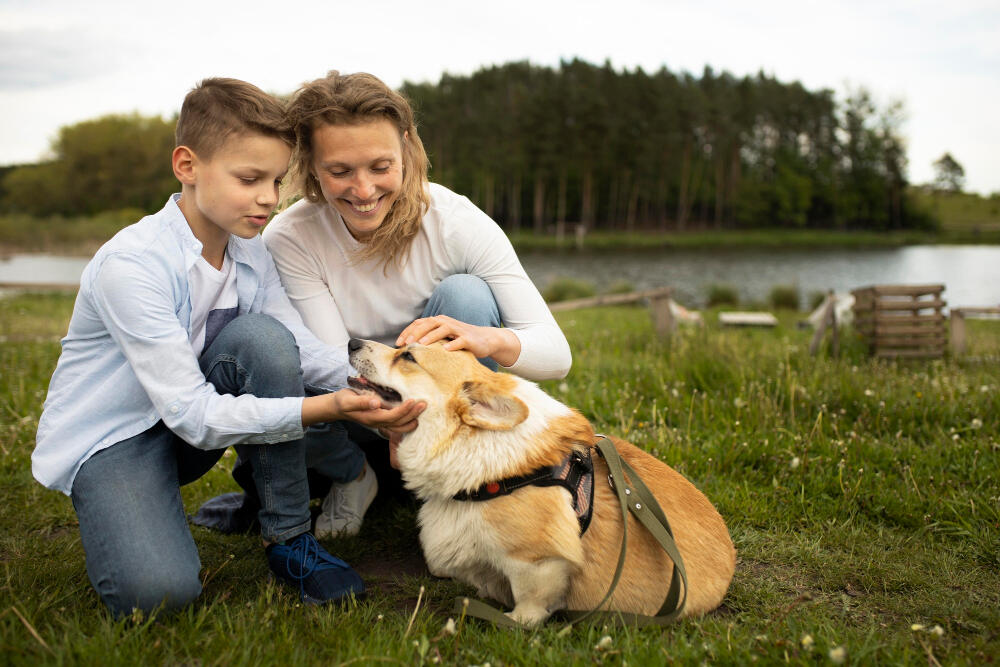How to Care for Newborn Puppies: A Complete Guide

Caring for newborn puppies can feel overwhelming, especially when their survival depends on meticulous attention. Without proper feeding, warmth, and hygiene, these fragile pups are at risk of malnutrition, illness, or even death. The good news? With the right knowledge, you can ensure they thrive. This guide breaks down essential tips and strategies to give your newborn puppies the best start in life, ensuring they grow into happy, healthy companions.
Preparing for Newborn Puppies
Before the arrival of newborn puppies, creating a safe and comfortable environment is crucial. Choose a quiet, clean space for a whelping area, free from drafts and excessive noise. Use a sturdy box or whelping bed lined with soft, absorbent materials, ensuring the area maintains a steady temperature between 85°F and 90°F for the first week. This warmth is vital since puppies cannot regulate their body temperature.
Stock up on essential supplies, including clean towels, a heating pad (on low), and a thermometer to monitor room conditions. You may also need puppy-safe milk replacer and feeding bottles in case the mother cannot nurse. Being prepared with these basics ensures you can meet their immediate needs from birth.
The First Few Hours After Birth
The first hours after birth are crucial for newborn puppies’ health and survival. Immediately after delivery, ensure each puppy is breathing and warm. If a puppy struggles to breathe, gently clear its airways and rub it with a soft towel to stimulate circulation. The mother typically cleans each puppy by licking, but if she doesn’t, you may need to step in to gently remove membranes and dry them off.
Newborns rely on warmth to maintain their body temperature as they can’t regulate it themselves. Keep their environment between 85°F and 90°F using heating pads or lamps, ensuring a safe distance to avoid burns. Puppies must begin nursing quickly to consume colostrum, the nutrient-rich first milk, which is vital for their immune development. Closely monitor them to ensure all are latching and feeding properly, intervening if necessary.
How Do I Feed a Newborn Puppy?

Feeding newborn puppies is critical for their survival, especially within the first few weeks of life. Ideally, puppies should nurse from their mother, as her milk provides essential nutrients and antibodies to protect against disease. If the mother cannot nurse, a high-quality puppy milk replacer is the best alternative, as regular cow’s milk is unsuitable and can cause digestive issues.
Puppies need to be fed every 2–3 hours for the first few weeks, gradually reducing the frequency as they grow. Use a specialized feeding bottle with a small nipple, ensuring the hole size allows milk to flow slowly to avoid choking. Always hold the puppy upright during feeding, as improper positioning can lead to aspiration pneumonia. Proper feeding ensures their healthy development and gives them a strong start in life.
Hygiene and Waste Management
Maintaining proper hygiene is crucial for newborn puppies, as their immune systems are not fully developed. Keep their living area clean and dry by regularly changing bedding and wiping down surfaces. This prevents bacterial growth and reduces the risk of infections.
Newborn puppies cannot eliminate waste on their own and rely on their mother to stimulate them. If the mother is unavailable, gently rub their genital area with a soft, damp cloth after each feeding to help them urinate and defecate. Dispose of waste promptly to maintain a sanitary environment.
Regularly inspect the puppies for signs of dirt or irritation. While full baths are unnecessary at this stage, lightly clean dirty areas with a warm, damp cloth. A clean and well-maintained environment promotes health and comfort, ensuring the puppies can focus on growing and thriving.
Temperature and Environment Management
Newborn puppies are unable to regulate their body temperature during their first weeks of life. Their environment must be kept warm, ideally between 85-90°F (29-32°C) for the first week, gradually lowering to 80°F (27°C) by the fourth week. A heating pad or heat lamp can help maintain consistent warmth, but ensure it doesn’t directly touch the puppies to avoid burns.
Humidity is equally important, as dry air can dehydrate puppies. Aim for 50-60% humidity to support their immune and digestive systems. Regularly check their whelping area for drafts and ensure a clean, cozy bedding surface. Puppies should be monitored for signs of chilling, such as lethargy or shivering, and overheating, like panting.
Monitoring Health and Growth

Monitoring your newborn puppies’ health and growth is essential to ensure they develop properly. Start by weighing each puppy daily for the first two weeks. Healthy puppies should gain weight consistently, typically doubling their birth weight within 7-10 days. Use a small digital scale for accuracy and keep a record for reference.
Watch for signs of illness, such as lethargy, lack of appetite, or unusual crying. These could indicate issues like dehydration, infections, or fading puppy syndrome. Addressing health concerns early can significantly improve their chances of recovery.
Puppies reach key developmental milestones at specific times. They usually open their eyes at 10-14 days and begin to walk by 3-4 weeks. Tracking these milestones helps identify potential delays and ensures timely intervention when needed.
Socialization and Training Basics
Newborn puppies begin learning about their world through interactions with their mother and littermates. This natural process teaches them vital social behaviors, such as how to communicate and play. For puppies without siblings, gentle human handling can simulate these interactions, fostering trust and confidence.
Around 3 to 4 weeks of age, puppies are ready to meet new experiences. Introduce them gradually to different sights, sounds, and textures to build their adaptability. Avoid overwhelming them, as positive exposure during this stage shapes their lifelong temperament.
By 6 to 8 weeks, simple training can begin. Use soft commands like “sit” or “stay” paired with rewards to instill discipline. Early lessons create a foundation for advanced training as they grow.
You can follow the video:
How to Care for the Mother Dog

The health and well-being of the mother dog are crucial for the survival of her puppies. Provide her with a quiet, comfortable space to nurse her litter, free from disturbances. Ensure she has access to clean water and a high-calorie diet formulated for lactating dogs, as her nutritional needs significantly increase during this period.
Monitor her closely for signs of exhaustion or medical issues such as mastitis, which can cause discomfort and affect milk production. If you notice swelling, redness, or unusual behavior, consult a veterinarian immediately. Supporting her recovery with gentle care will enable her to nurture her puppies effectively.
Regularly clean the whelping area to maintain hygiene and minimize the risk of infections. A stress-free environment will encourage bonding and ensure both the mother and her puppies thrive.
Special Considerations for Orphaned Puppies
Orphaned puppies face unique challenges as they lack the essential care a mother would provide. Without a mother, they cannot nurse, and their ability to regulate body temperature is significantly compromised, making them more susceptible to hypothermia. Without the mother’s stimulation, they may also struggle with elimination, which could lead to further health complications.
To care for orphaned puppies, ensure they are fed a puppy milk replacer every two to three hours. You will need to simulate the mother’s stimulation by gently rubbing their bodies to encourage urination and defecation. It’s also crucial to maintain a warm environment, using heating pads and monitoring their temperature closely to prevent hypothermia.
Additionally, orphaned puppies require extra attention for socialization and comfort. They can become anxious or lonely, so it’s important to provide cuddling and gentle handling to create a bond and reassure them. If possible, seeking the help of a veterinary professional for advice and guidance will ensure you meet the specific needs of these vulnerable pups.
Troubleshooting Common Issues in Newborn Puppy Care
Newborn puppies are incredibly fragile, and even the smallest problem can have serious consequences for their health and development. As a pet parent, you may encounter challenges such as feeding issues, lack of weight gain, or signs of illness that need immediate attention. These problems can lead to malnutrition, dehydration, or even death if not addressed properly. However, by understanding the root causes of these issues, you can take proactive steps to ensure your puppies stay healthy. In this section, we’ll explore common problems you may face and how to solve them effectively.
Feeding Challenges
If a newborn puppy refuses to nurse or seems weak, check for dehydration or inadequate milk intake. Puppies should nurse every two to three hours, especially in the first few days. If the mother is absent or unable to nurse, use a puppy milk replacer. Always ensure the milk is at the right temperature and that the puppy is latched correctly
Hypothermia Risk
Newborn puppies can’t regulate their body temperature and are highly susceptible to hypothermia. If they feel cold to the touch or are lethargic, warm them gently with a heating pad or warm towel. Ensure the environment is kept at 75-80°F with proper humidity levels
Lack of Elimination
If a puppy isn’t eliminating waste after feeding, it may need stimulation. Gently rub its genital area with a warm, damp cloth to encourage urination and defecation. Without this stimulation, puppies can become seriously ill
Illness Signs
Newborn puppies are vulnerable to infections, such as parvovirus or distemper. If a puppy seems unusually lethargic, has diarrhea, or struggles to breathe, consult a veterinarian immediately. Timely intervention is critical to prevent complications
Conclusion
By following the right procedures, such as ensuring they get the proper nutrition and creating a safe, warm environment, you can give newborn puppies the best chance at a healthy start. This article has provided the key steps to ensure their well-being during these critical early weeks, setting them on the path to growth and development.
Tags
What do you think?
Related Articles

Why Puppies Won’t Eat & What to Do About it?
As a pet parent, it’s distressing to see your puppy avoid meals. A lack of appetite can signal stress, teething pain, or an underlying issue.

How to Have Thanksgiving Dinner Without a Dog Begging at the Table
Thanksgiving is a time for family, food, and togetherness. However, a dog begging at the table can disrupt this special meal. Thankfully, with a bit

Keeping Pets Safe at Christmas: Essential Tips for a Joyful Holiday Season
The holiday season is a time for joy, family gatherings, and festive decorations, but keeping pets safe at Christmas should also be a top priority
